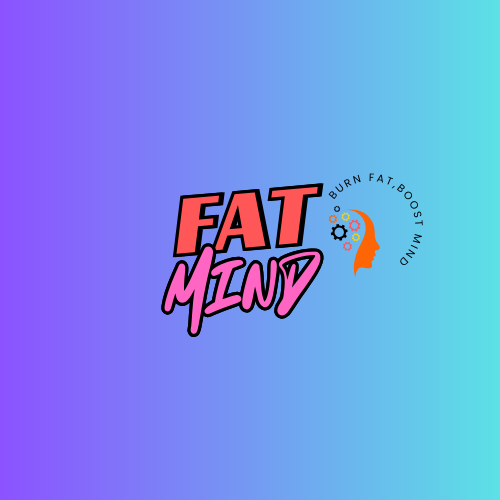Introduction: Why Meal Timing Matters
When it comes to losing belly fat and maintaining mental well-being, what you eat is important—but when you eat can be just as crucial. Your body’s metabolism, hormone levels, and brain function are all influenced by meal timing.
This article explores the science behind meal timing, how it affects belly fat reduction and mood stability, and the best strategies for optimizing your eating schedule.
How Meal Timing Affects Belly Fat Loss
1. Regulates Insulin for Fat Burning
- Eating at consistent times helps regulate insulin levels, preventing fat storage.
- Skipping meals or irregular eating can cause blood sugar spikes and crashes, leading to more belly fat accumulation.
2. Supports the Body’s Circadian Rhythm
- The body’s metabolism follows a 24-hour circadian rhythm, meaning digestion is most efficient at certain times.
- Eating earlier in the day aligns with this rhythm, promoting better digestion and fat loss.
3. Reduces Late-Night Fat Storage
- Consuming large meals late at night can increase fat storage because metabolism slows down in the evening.
- Eating earlier in the evening allows the body to process food efficiently and prevents belly fat gain.
4. Boosts Fat Oxidation During Fasting Periods
- Longer gaps between meals allow the body to switch to fat-burning mode instead of constantly relying on glucose.
- Intermittent fasting is one strategy that enhances fat oxidation and promotes belly fat loss.
How Meal Timing Influences Mood and Mental Stability
1. Prevents Blood Sugar Crashes and Mood Swings
- Irregular eating can cause low blood sugar, leading to irritability, anxiety, and brain fog.
- Regular meals help maintain stable energy and mood levels throughout the day.
2. Balances Neurotransmitters
- Meal timing influences the production of serotonin and dopamine, which regulate mood.
- Eating protein-rich foods in the morning supports dopamine (focus and motivation), while evening meals help serotonin (relaxation and sleep).
3. Reduces Cortisol and Stress Levels
- Skipping meals or eating late at night can raise cortisol, the stress hormone that contributes to belly fat.
- Eating balanced meals at the right times helps keep stress levels in check.
4. Enhances Sleep Quality
- Late-night eating disrupts the body’s natural melatonin production, leading to poor sleep.
- Good sleep is essential for fat loss and mental well-being, making early dinners a smarter choice.
Best Meal Timing Strategies for Fat Loss and Mood Stability
Eat Within a 10-12 Hour Window
- Avoid eating for at least 12 hours overnight to support fat-burning and digestion.
- Example: If your first meal is at 8 AM, finish your last meal by 8 PM.
Front-Load Calories Earlier in the Day
- Eating more calories earlier and less at night helps with metabolism and fat loss.
- Ideal ratio: Breakfast (40%) – Lunch (35%) – Dinner (25%).
Prioritize a Protein-Rich Breakfast
- Starting the day with protein helps keep hunger and cravings under control.
- Examples: Eggs, Greek yogurt, or a protein smoothie.
Avoid Late-Night Eating
- The body digests food less efficiently at night, leading to fat storage and sleep disruptions.
- Finish eating at least 3 hours before bedtime.
Use Intermittent Fasting for Fat Loss and Mental Clarity
- Fasting for 14-16 hours can improve insulin sensitivity, fat burning, and cognitive function.
- Example: Eat between 10 AM and 6 PM for an 8-hour eating window.
Conclusion: Small Timing Adjustments, Big Results
Meal timing plays a major role in belly fat loss and mental stability. By eating earlier, maintaining consistent meal patterns, and avoiding late-night snacking, you can improve fat metabolism, mood balance, and overall health.
A simple adjustment in when you eat can make a significant difference in your body composition and mental clarity over time.
FAQ
1. What is the best time to eat for fat loss?
The ideal eating window is between 8 AM and 8 PM, with the majority of calories consumed before 4 PM.
2. Can eating late at night cause weight gain?
Yes, late-night eating can lead to higher fat storage and disrupted metabolism, making it harder to lose belly fat.
3. How long should I wait between meals?
A good rule is to eat every 3-4 hours to maintain stable energy and blood sugar levels.
4. Does skipping breakfast slow metabolism?
Skipping breakfast doesn’t slow metabolism, but eating a protein-rich breakfast can help control hunger and mood throughout the day.
5. What are the best foods to eat at night for better sleep?
Foods rich in magnesium, tryptophan, and melatonin, such as almonds, turkey, and cherries, can support restful sleep.
